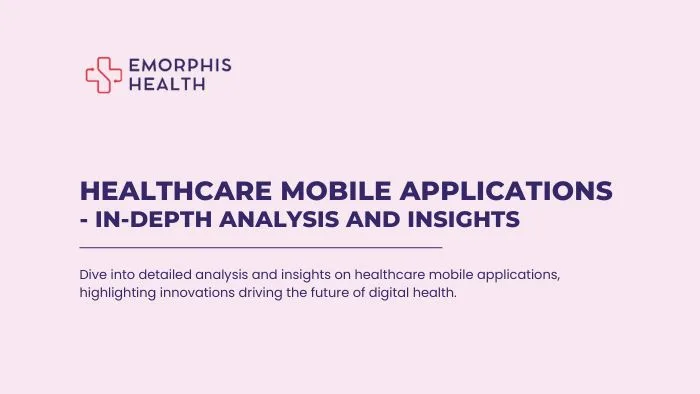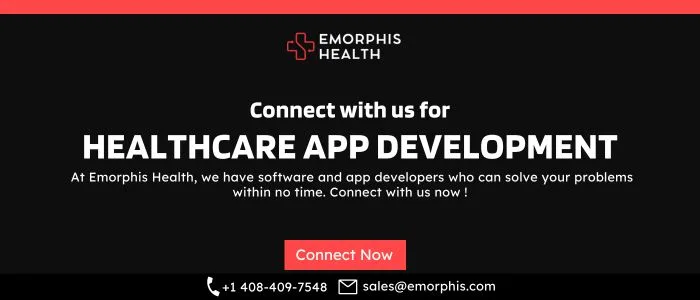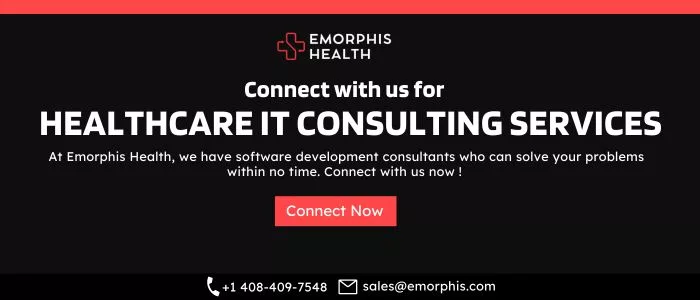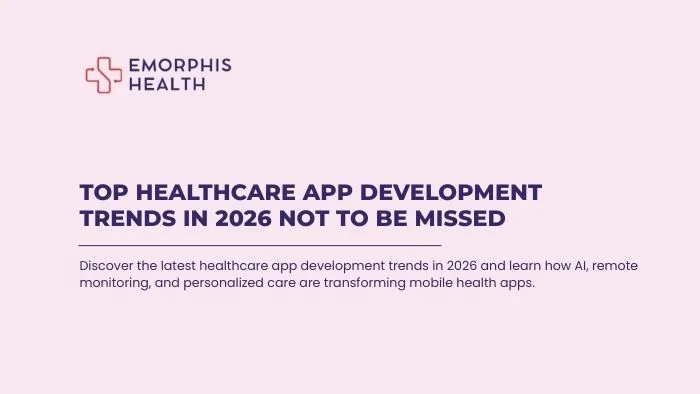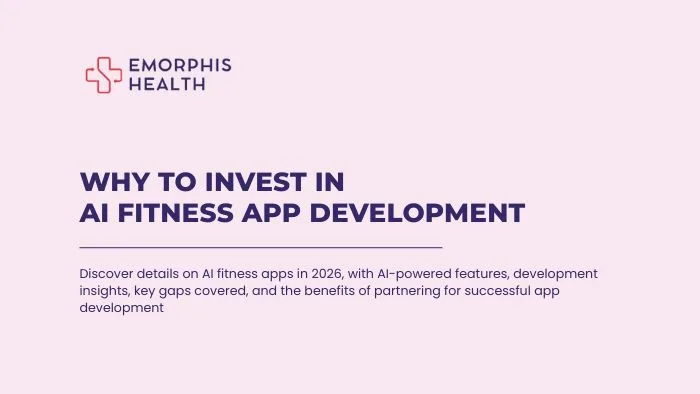Mobile Applications for Healthcare: Transforming Patient Care and Provider Efficiency
See Contents
- 1 Mobile Applications for Healthcare: Transforming Patient Care and Provider Efficiency
- 2 Keys Stats
- 3 Understanding Healthcare Mobile Applications
- 4 Top and Popular Mobile Applications for Healthcare
- 5 Key Benefits of Healthcare Mobile Applications
- 6 Essential Features of a Healthcare Mobile App
- 7 Popular Use Cases of Healthcare Mobile Applications
- 8 Challenges in Developing Healthcare Mobile Applications
- 9 Development Process for Healthcare Mobile Applications
- 10 Cost Estimation for Healthcare App Development
- 11 Future Trends in Healthcare Mobile Applications
- 12 Conclusion
In today’s fast-paced world, mobile technology has become a cornerstone in every industry, and healthcare is no exception. In fact, the rise of mobile applications for healthcare is revolutionizing how care is delivered and managed. These applications not only enhance the patient experience but also improve operational efficiency for providers. With an increasing demand for accessible and personalized care, healthcare mobile applications are leading the charge toward a digitally empowered future.
Keys Stats
The Fortune Business Insights report provides a comprehensive analysis of the global mHealth apps market, valued at USD 33.17 billion in 2023 and forecasted to reach USD 88.70 billion by 2032, growing at a robust CAGR of 11.7%. The study attributes this growth to factors like advancements in telecommunication technologies, such as 5G, increased smartphone penetration, and rising consumer demand for health monitoring solutions.
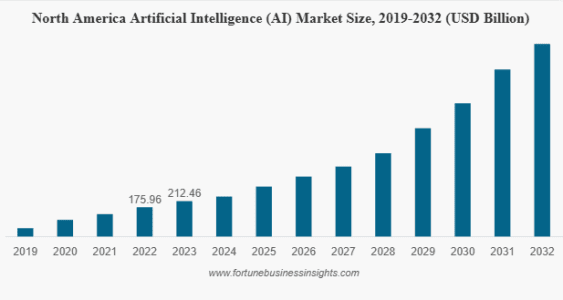
Key drivers include the rising prevalence of chronic diseases like diabetes, hypertension, and coronary ailments, alongside a growing health-conscious population opting for fitness and wellness apps. North America dominates the market with substantial contributions from the U.S., while the Asia Pacific region is set to witness the fastest growth due to increasing disposable incomes and digital health initiatives.
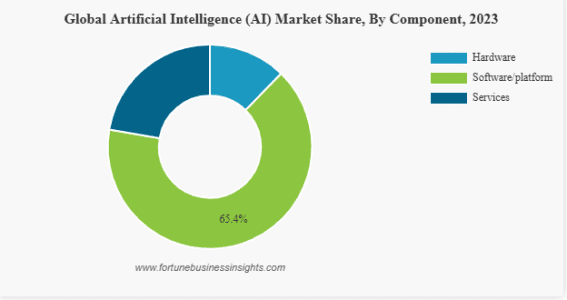
The report also discusses significant trends, including the adoption of mHealth apps for remote patient monitoring, chronic disease management, and fitness tracking, supported by collaborations like the partnership between Omada Health and Intermountain Healthcare. Technological advancements and investments in the sector are enabling companies like Apple, Fitbit, and Omron Healthcare to strengthen their market positions with innovative solutions.
Additionally, challenges such as technological barriers in developing countries and lack of digital infrastructure are identified as key restraints to market growth. Nonetheless, the continued focus on novel product launches, partnerships, and regulatory support in developed economies is expected to sustain the market’s upward trajectory.
This detailed report also delves into market segmentation by app type, application, and marketplace, providing a well-rounded understanding of the dynamics shaping the mHealth apps market. Find the report here.
According to the Grand View research report, the global mHealth apps market, valued at USD 32.42 billion in 2023, is set to grow at a CAGR of 14.9% from 2024 to 2030. This surge is driven by the increasing adoption of fitness and medical apps, growing internet and smartphone penetration, and rising awareness about health management.
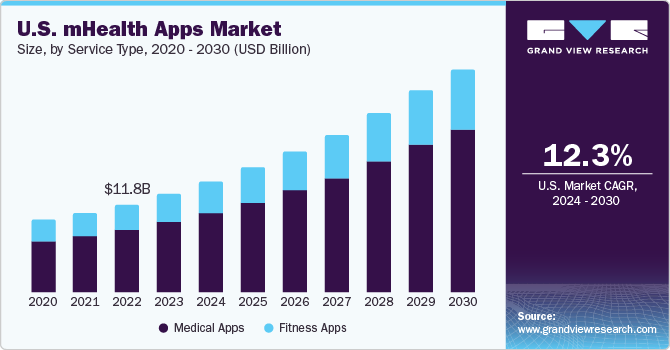
For instance, in 2022, 84 million U.S. users relied on healthcare apps. Additionally, initiatives like the European Union’s CUOREMA project highlight the role of collaborations and funding in boosting market growth.
Smartphone proliferation, projected to reach 92% penetration by 2030, and the growing prevalence of chronic diseases, such as diabetes and cancer, are key growth drivers.
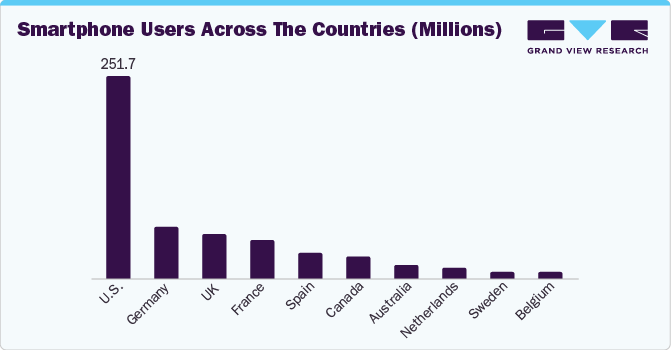
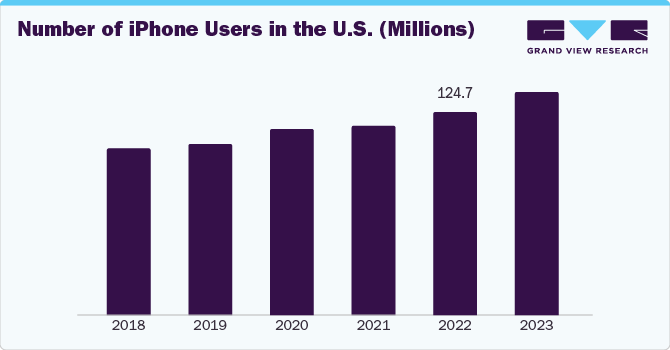
Chronic disease management apps enable users to monitor their conditions effectively. Innovative app launches, like the mental health app Let’s Get Happi, and mergers, such as Stryker’s acquisition of Vocera Communications, further fuel industry expansion. However, stringent regulations like HIPAA and GDPR add development costs but ensure app security and efficacy.
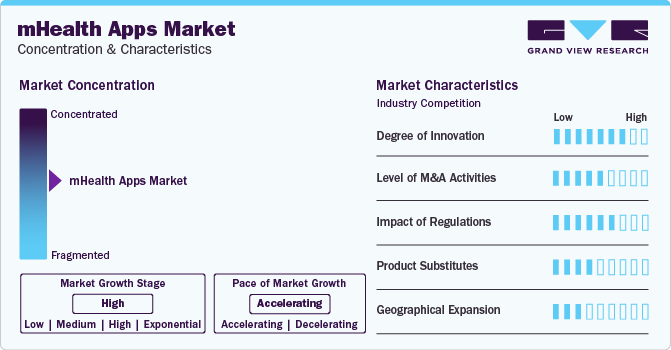
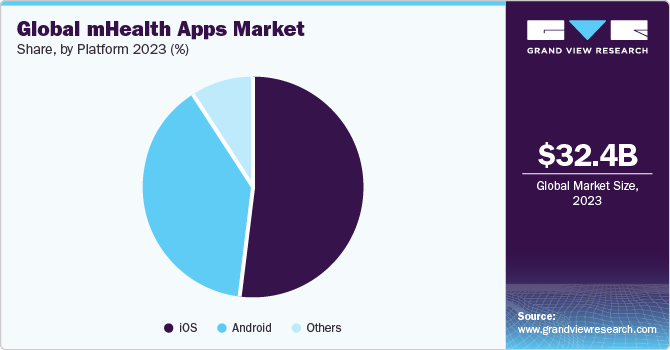
The medical apps segment led the market in 2023 with a projected CAGR of 15.3%, while fitness apps gain traction due to increasing health consciousness. iOS remains dominant, though Android’s affordability drives faster growth. Regionally, North America leads with 46.6% of revenue, bolstered by high healthcare spending and advanced infrastructure. Meanwhile, Asia-Pacific, driven by smartphone adoption and aging populations, is the fastest-growing region. Innovations in the Middle East and Africa, such as AI-driven healthcare in the UAE, underline mHealth’s transformative potential globally.
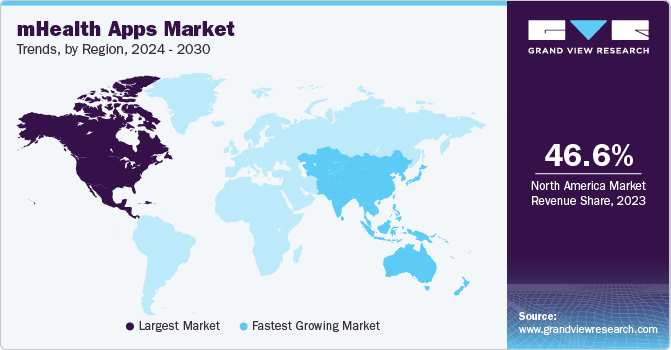
Understanding Healthcare Mobile Applications
What Are Healthcare Mobile Apps? Healthcare mobile applications are software programs designed specifically for use on smartphones and tablets to support various healthcare activities. They cater to patients, healthcare providers, and administrators alike, streamlining processes and enhancing communication. In fact, these apps are redefining how healthcare services are accessed and delivered worldwide.
Types of Healthcare Mobile Applications
Healthcare mobile applications can be broadly categorized into three types:
- Patient-centric apps: For example, apps that monitor health metrics or provide telemedicine services.
- Provider-centric apps: These help doctors manage patient data or collaborate with colleagues.
- Hybrid solutions: These combine features for both patients and providers, bridging communication gaps.
Let’s now look at some of the top and most popular mobile applications for healthcare.
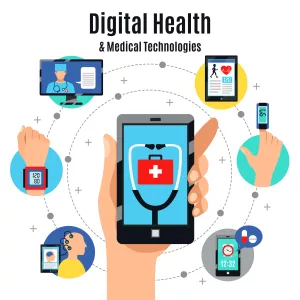
Top and Popular Mobile Applications for Healthcare
Healthcare mobile applications are transforming the industry, offering diverse functionalities that cater to both patients and providers. Below are some of the top and most popular mobile applications for healthcare, along with details about their features and impact.
1. MyChart
MyChart is a comprehensive platform that allows patients to access their health records, schedule appointments, and communicate directly with healthcare providers.
Key Features:
- View test results and medical history.
- Secure messaging with doctors.
- Appointment scheduling and reminders.
Highlight:
This app integrates seamlessly with EHR systems, making it a preferred choice for hospitals and clinics.
2. Teladoc Health
Teladoc Health focuses on telemedicine, providing 24/7 access to licensed medical professionals through virtual consultations.
Key Features:
- On-demand consultations for non-emergency issues.
- Personalized health advice.
- Mental health counseling services.
Highlight:
Teladoc stands out for its usability, connecting patients with doctors regardless of location, a key advantage of healthcare mobile applications.
3. Pill Reminder – Meds Alarm
This app is designed to help users manage their medication schedules effectively.
Key Features:
- Customizable alarms for each medication.
- Pill log to track adherence.
- Easy-to-navigate interface.
Highlight:
The app helps improve medication adherence, which is critical for chronic disease management.
4. Medscape
Medscape is a go-to resource for healthcare professionals, offering medical news, drug information, and educational tools.
Key Features:
- Comprehensive drug reference database.
- Clinical guidelines and disease insights.
- Continuing Medical Education (CME) courses.
Highlight:
Popular among doctors and medical students, this app is a perfect example of how mobile applications for healthcare enhance professional learning.
5. FitnessPal by MyFitnessPal
This app bridges the gap between fitness and healthcare, offering tools for calorie counting, diet planning, and activity tracking.
Key Features:
- Large database of food items for calorie tracking.
- Integration with fitness trackers.
- Personalized diet recommendations.
Highlight:
Its user-friendly design encourages healthier lifestyle choices, complementing traditional healthcare mobile applications.
6. MDLIVE
MDLIVE provides telehealth services, including general medical consultations and behavioral health support.
Key Features:
- 24/7 virtual doctor visits.
- Prescription delivery services.
- Behavioral health therapy.
Highlight:
MDLIVE offers a seamless telemedicine experience, making healthcare accessible from home.
7. HealthTap
HealthTap connects users with a network of doctors for virtual consultations and answers to health-related questions.
Key Features:
- Instant medical advice from licensed physicians.
- Symptom checker tool.
- Personalized health insights.
Highlight:
It’s a versatile app catering to both quick health checks and detailed medical consultations.
8. CareZone
This app is designed to simplify caregiving responsibilities, helping users manage the health of loved ones.
Key Features:
- Medication management tools.
- Centralized storage for medical records.
- Appointment and task reminders.
Highlight:
CareZone is particularly popular among caregivers managing complex medical schedules, showcasing the adaptability of healthcare mobile applications.
9. Headspace
While primarily a mental health app, Headspace plays a significant role in improving overall well-being.
Key Features:
- Guided meditations and mindfulness exercises.
- Sleep aids and relaxation techniques
- Stress and anxiety management programs.
Highlight:
It complements physical health apps by addressing the mental health aspect, an essential component of holistic care.
10. Ada – Your Health Companion
Ada is an AI-powered app that helps users analyze symptoms and provides guidance on possible conditions.
Key Features:
- Symptom assessment using AI algorithms.
- Personalized health insights.
- Integration with wearable devices.
Highlight:
Ada exemplifies how mobile applications for healthcare leverage technology to empower users with actionable health insights.
The above healthcare mobile applications demonstrate the transformative potential of mobile technology in healthcare. By addressing various aspects such as telemedicine, medication management, and fitness tracking, these apps are bridging gaps in care delivery. Whether you are a patient seeking convenience or a provider aiming for efficiency, these apps are leading the way in modern healthcare.
From understanding what these applications are, it’s essential to explore why they are indispensable in modern healthcare.
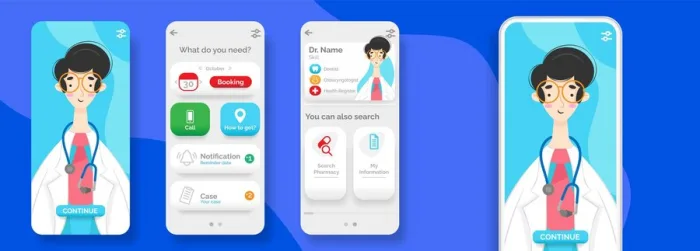
Key Benefits of Healthcare Mobile Applications
- Enhanced Patient Engagement: Patients can actively participate in their care with tools like medication reminders, health monitoring, and educational resources. This fosters better health outcomes.
- Improved Accessibility: Mobile apps provide 24/7 access to healthcare resources and professionals, eliminating the need for in-person visits in many cases.
- Streamlined Communication: Secure messaging and video conferencing enhance communication between patients and healthcare providers, ensuring timely care delivery.
- Efficient Data Management: Apps integrate seamlessly with EHR systems, allowing providers to access and manage patient records in real time.
- Cost Savings: By reducing hospital visits, administrative overhead, and unnecessary procedures, healthcare mobile apps contribute to significant cost reductions for patients and providers.
- Faster Diagnosis and Treatment: Features like symptom checkers and AI-based diagnostics enable quicker identification of health issues and suggest actionable steps.
- Support for Chronic Disease Management: These apps provide tools to track vital signs, medication adherence, and lifestyle choices, empowering patients to manage chronic conditions effectively.
- Health Education: Interactive tools and content educate users about their health, preventive measures, and conditions, fostering a proactive approach to wellness.
- Personalized Healthcare: AI-powered apps provide tailored recommendations and care plans based on individual health data and preferences.
- Reduced Geographical Barriers: Telehealth apps connect patients in remote or underserved areas with specialized healthcare providers, improving access to quality care.
Now, let’s take a look at the details of key features of healthcare mobile applications.
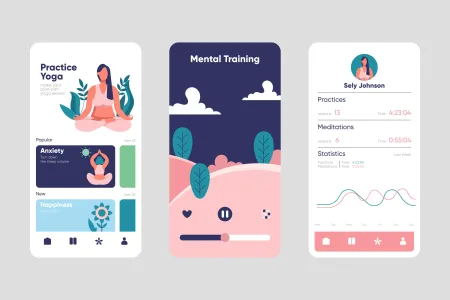
Essential Features of a Healthcare Mobile App
- User-Friendly Interface: An intuitive and accessible design ensures users of all ages and technical abilities can navigate the app easily.
- EHR and EMR Integration: The app should connect with electronic health record systems to centralize patient data for efficient decision-making.
- Telemedicine Capabilities: Video and audio consultation features provide real-time interaction between patients and providers, enhancing accessibility.
- Health Monitoring Tools: Integration with wearables and IoT devices allows for real-time tracking of vitals such as heart rate, blood pressure, and glucose levels.
- HIPAA-Compliant Security Measures: Ensuring patient data privacy with encryption, secure storage, and multi-factor authentication is critical for trust and legal compliance.
- Push Notifications and Alerts: Timely reminders for medication, appointments, and follow-ups help users stay on track with their healthcare plans.
- Symptom Checker and AI Diagnostics: Tools that analyze symptoms and provide preliminary diagnoses guide users in taking the right steps for care.
- Appointment Scheduling and Management: Features for booking, rescheduling, and canceling appointments streamline user convenience and provider efficiency.
- Multilingual Support: Providing content in multiple languages ensures inclusivity and accessibility for diverse user groups.
- Analytics and Reporting: Dashboards for health data trends and summaries empower both users and providers to make informed decisions.
With these features in mind, it’s crucial to understand the real-world types of healthcare mobile apps.

Popular Use Cases of Healthcare Mobile Applications
1. Telemedicine Apps
Telemedicine apps enable virtual consultations, providing patients with immediate access to healthcare professionals. In fact, they have become a lifeline for many during emergencies and pandemics.
2. Chronic Disease Management Apps
For patients managing chronic conditions like diabetes or hypertension, mobile applications offer tracking tools, reminders, and direct communication with healthcare teams. Moreover, these apps enhance long-term health outcomes.
3. Mental Health and Wellness Apps
Mental health apps provide cognitive therapies, meditation guides, and stress management tools. Furthermore, they are helping to destigmatize mental health issues and making support more accessible.
4. Medication Reminder Apps
These apps improve medication adherence by sending timely reminders to users. In addition, they often include features like prescription refill alerts and drug interaction warnings.
5. Fitness and Wellness Apps
Mobile applications for healthcare also encompass fitness apps that promote healthier lifestyles. These apps track activity, nutrition, and sleep patterns, contributing to preventive healthcare.
Understanding these use cases highlights the diverse impact of healthcare mobile applications, but there are challenges to consider. Let’s look at them now.
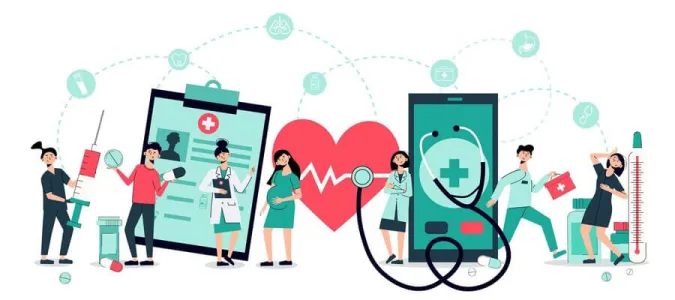
Challenges in Developing Healthcare Mobile Applications
Developing healthcare mobile applications involves navigating several challenges that demand careful attention and expertise. For instance, regulatory and compliance issues are a major hurdle. Developers must ensure their apps adhere to laws such as HIPAA in the US or GDPR in Europe. In fact, achieving compliance is not only time-intensive but also non-negotiable to protect sensitive user data.
Another significant concern is data security. With the increasing volume of sensitive information shared through mobile applications for healthcare, robust security protocols like encryption, multi-factor authentication, and secure cloud storage are essential. These measures help safeguard patient information and foster trust among users.
Additionally, user adoption and retention pose unique challenges. Designing an app that appeals to a diverse demographic, from tech-savvy millennials to elderly patients, requires a balance of intuitive design and accessibility. In fact, incorporating regular updates and user-friendly features is crucial for maintaining engagement over time.
Overcoming these challenges sets the stage for the development process, where innovative ideas take shape and transform into practical solutions.
Development Process for Healthcare Mobile Applications
Creating successful healthcare mobile applications begins with a well-structured development process. The first step is discovery and requirement analysis, where developers gain a deep understanding of the target audience and define clear goals. In fact, this research forms the foundation for the app’s success by aligning features with user needs.
Next is design and prototyping, a critical phase where prototypes are created to visualize the app’s functionality and usability. Furthermore, this step allows stakeholders to provide valuable feedback early, ensuring the app aligns with their expectations.
The development and testing phase follows, where developers build the app while rigorously testing for bugs and vulnerabilities. Also, this stage ensures that the app is both reliable and secure, meeting high industry standards.
Finally, the app enters the deployment and maintenance phase. Once launched, regular updates and dedicated user support keep the app functional and relevant. Furthermore, continuous improvement and feature enhancements ensure long-term success in an evolving market.
Having detailed the development process, it’s crucial to explore the cost factors involved.
Cost Estimation for Healthcare App Development
The cost of creating healthcare mobile applications depends on several factors. These include the complexity of features, the platforms targeted (iOS, Android, or both), and the expertise of the development team. In fact, apps with advanced functionalities such as AI-based diagnostics or wearable integrations naturally require higher budgets.
For effective budgeting, it’s advisable to prioritize essential features and adopt agile development methodologies. Moreover, partnering with an experienced team not only optimizes costs but also enhances ROI by delivering a high-quality product that meets user expectations.
With the cost considerations addressed, it’s important to look ahead and consider how these applications will shape the future of healthcare.

Future Trends in Healthcare Mobile Applications
The future of healthcare mobile applications is brimming with possibilities as technology continues to evolve at an unprecedented pace. AI-driven diagnostics and predictive analytics are set to revolutionize patient care by enabling faster and more accurate decision-making.
Furthermore, wearable integrations and IoT capabilities will expand the functionality of mobile applications for healthcare, offering real-time health monitoring and personalized insights. Blockchain technology is also poised to enhance data security, ensuring transparency and trust in sensitive health data transactions. Telemedicine features are expected to grow more sophisticated, with augmented reality (AR) and virtual reality (VR) paving the way for immersive medical consultations and training.
Find details on revolutionary smart healthcare technologies you should know.
Additionally, patient engagement tools like chatbots and remote monitoring systems will make healthcare more accessible and proactive. These advancements not only promise to improve health outcomes but also redefine the role of healthcare mobile applications in a patient-centered ecosystem.
Conclusion
Mobile applications for healthcare are not just tools; they are enablers of a more connected and efficient healthcare ecosystem. In fact, with their transformative potential, these applications are the cornerstone of modern patient care and provider workflows. Furthermore, as technology evolves, so will the opportunities to improve health outcomes.
Ready to transform your healthcare service with cutting-edge mobile applications? Connect with our healthcare app development experts today to explore how we can help you build the future of healthcare!

